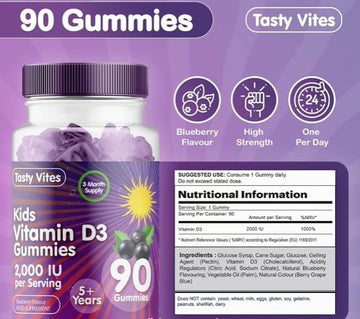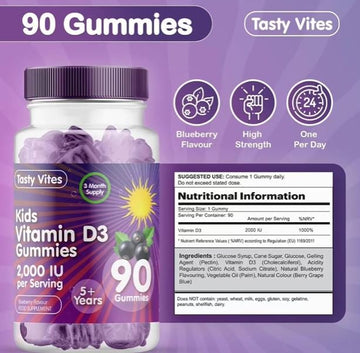Vitamin K: The Powerful Nutrient with Numerous Health Benefits
by Oliver Morgan on Mar 15, 2023

Vitamin K: The Powerful Nutrient with Numerous Health Benefits
Vitamin K is a crucial nutrient that is essential for good health. It is known to play a vital role in blood clotting, bone health, and heart health. Vitamin K has two main forms: K1 and K2. While both forms are important, they have different functions in the body.
K1 is found in green leafy vegetables, such as kale, spinach, and broccoli, while K2 is found in fermented foods, such as cheese and natto. In this article, we will explore the many health benefits of vitamin K, the best sources of this nutrient, and the positive research studies that support its use.
Blood Clotting
One of the primary functions of vitamin K is to assist in blood clotting. This nutrient helps the body produce prothrombin, a protein that is necessary for blood clotting. Without enough vitamin K, the body would not be able to form blood clots, leading to excessive bleeding.
Bone Health
Vitamin K is also essential for bone health. This nutrient helps to activate osteocalcin, a protein that is necessary for bone formation. Studies have shown that people with higher levels of vitamin K have better bone density and a lower risk of fractures. Vitamin K has also been shown to reduce the risk of osteoporosis in postmenopausal women.
Heart Health
In addition to its role in blood clotting and bone health, vitamin K has also been shown to benefit heart health. Studies have found that people with higher levels of vitamin K have a lower risk of heart disease. Vitamin K is thought to help protect the heart by preventing the buildup of calcium in the arteries, which can lead to heart disease.
Other Health Benefits
Vitamin K may also have other health benefits. For example, some studies have found that this nutrient may help reduce inflammation in the body, which is linked to a wide range of health problems, including cancer and autoimmune diseases. Vitamin K may also play a role in insulin sensitivity, which is important for people with diabetes.
Best Sources of Vitamin K
The best sources of vitamin K include green leafy vegetables, such as kale, spinach, and broccoli. Other good sources of vitamin K include Brussels sprouts, cabbage, collard greens, and turnip greens. Fermented foods, such as cheese and natto, are also good sources of vitamin K2.
Research Studies
Numerous studies have investigated the health benefits of vitamin K, and the results have been overwhelmingly positive. For example, a study published in the American Journal of Clinical Nutrition found that women with higher levels of vitamin K had a lower risk of hip fractures. Another study published in the Journal of Bone and Mineral Research found that vitamin K supplementation improved bone density in postmenopausal women.
A study published in the journal Atherosclerosis found that people with higher levels of vitamin K had a lower risk of heart disease. And a study published in the Journal of Nutrition found that vitamin K may help reduce inflammation in the body.
Conclusion
Vitamin K is a powerful nutrient that is essential for good health. It plays a vital role in blood clotting, bone health, and heart health. The best sources of vitamin K are green leafy vegetables, such as kale, spinach, and broccoli, as well as fermented foods like cheese and natto. Positive research studies have shown that vitamin K can improve bone density, reduce the risk of heart disease, and help reduce inflammation in the body. So if you want to improve your overall health, make sure you are getting enough vitamin K in your diet.
One of our most popular products our Kids Multivitamin Gummies includes the recommended daily dose of vitamin K for kids aged 5-16 years old, click here to buy now.




